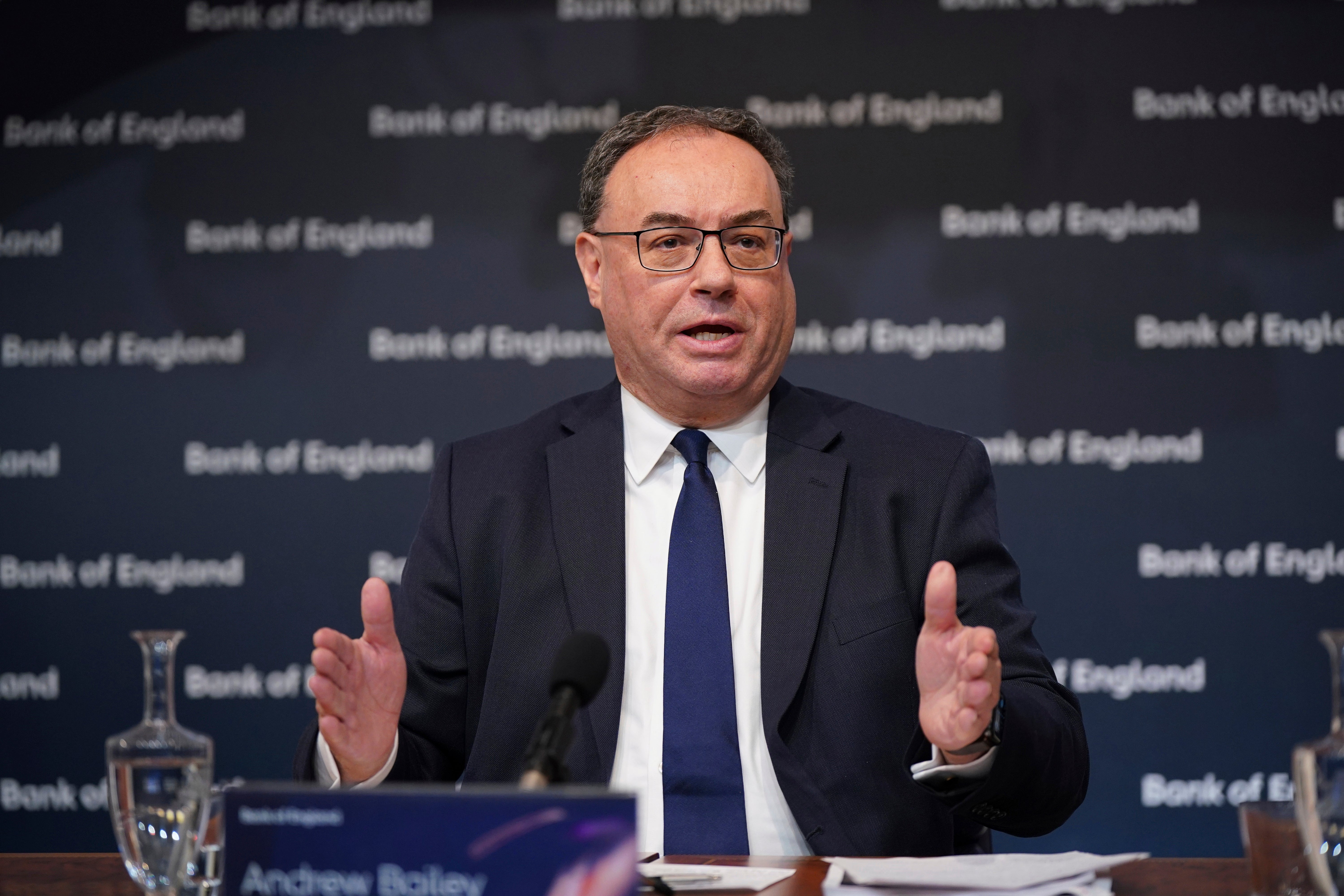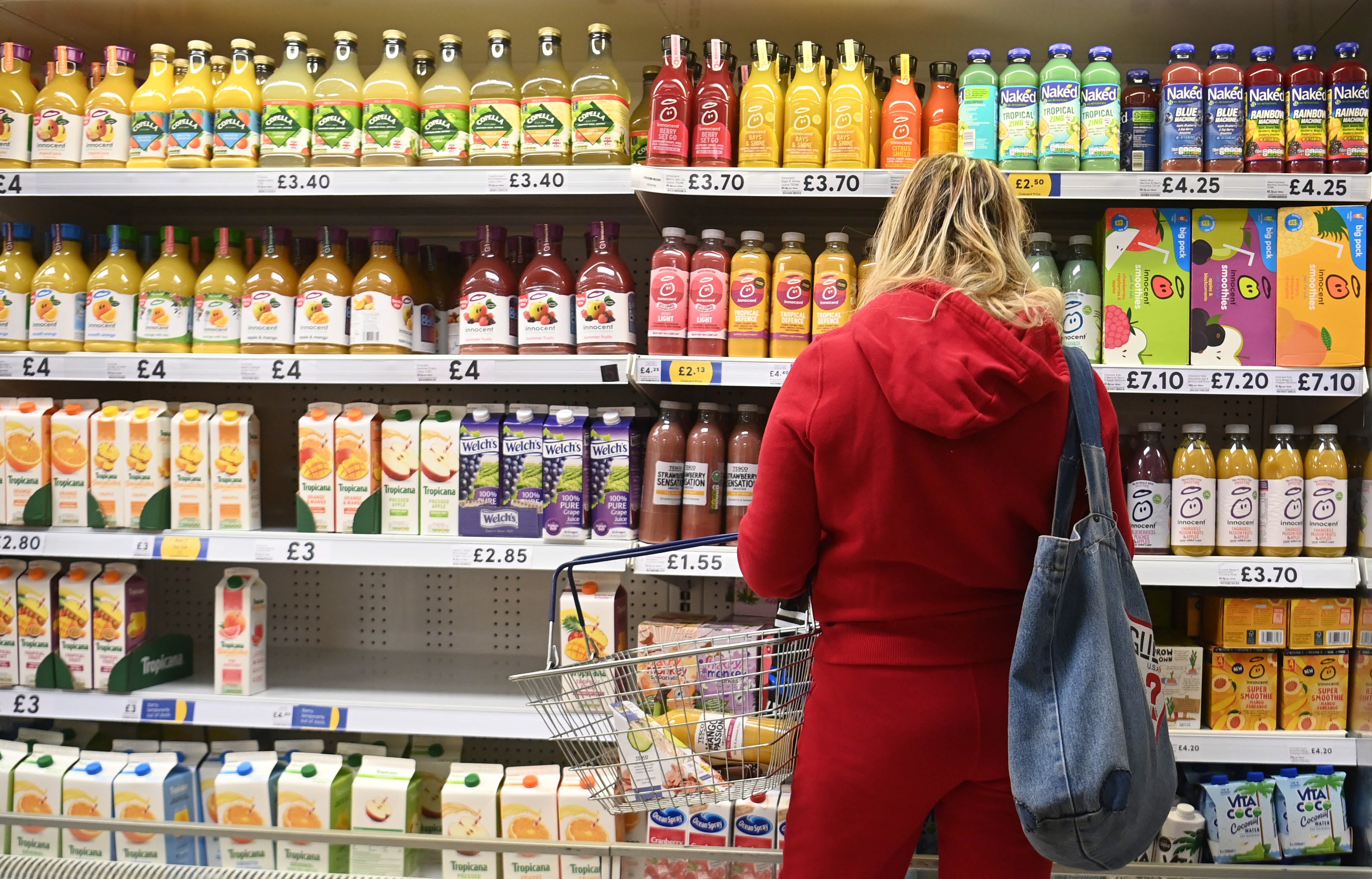UK inflation falls for third consecutive month to 10.1%
Office for National Statistics says drop driven by falling price of air and coach travel
Inflation fell slightly for the third month running in January, easing pressure on the Bank of England to make further hikes to interest rates.
The Office for National Statistics said inflation dropped to 10.1 per cent in January from 10.5 per cent in December.
Although inflation is falling, price rises remain at sky-high levels, meaning Britons will continue to feel the pinch on their finances.
January’s fall was driven by the price of air and coach travel dropping back following a rise over the Christmas period.
Petrol prices continue to fall and there was a dip in restaurant, cafe and takeaway prices.
Officials said the cost of furniture decreased by more than this time last year “in line with traditional New Year discounting.”
But this was offset by rising prices for alcohol and tobacco, following on from “seasonal price cuts in December and a more subdued rise at the same time last year.”
Grant Fitzner, ONS chief economist, said there were also indications that costs facing businesses are rising more slowly, driven by falls in crude oil, electricity and petroleum prices.
“However, business prices remain high overall, particularly for steel and food products,” he said.
With inflation still firmly in double digits, households are yet to feel the pressure lift.
Sky high rises in food prices are also expected to keep finances under strain, with a raft of retailers warning recently that shop prices are yet to reach their peak.
Food price rises hit a fresh 45-year high in December, as the ONS said that food and non-alcoholic drinks inflation soared to 16.8 per cent from 16.4 per cent in November.
The Bank of England has said it believes CPI will fall sharply this year, however, with governor Andrew Bailey recently saying there has been a "turning of the corner" on inflation in recent months.

This is due to falling fuel prices and as supply chain difficulties have eased, while wholesale energy prices have also dropped significantly since the painful costs seen last year.
The Bank is forecasting inflation to fall to about 4 per cent towards the end of this year, alongside a much shallower projected decline in economic output than in the November Report forecast.
Commenting on Tuesday’s figures Kevin Bright, partner and global leader of the consumer pricing practice at McKinsey & company, said “persistently” high inflation was continuing to hit household finances.
“This means non-essential spending will likely continue to be weaker as higher monthly outgoings continue to weigh heavily on households,” he said.
“We’ll likely see this play out in the form of consumers continuing to adapt their purchasing behaviour, looking for deals, shifting to lower priced alternatives and deferring large purchases.”
He added: “While high inflation is hard for retailers to manage, persistently high inflation is harder still. Retailers are caught in the middle – tackling a steep jump in supplier costs on the one hand and struggling to maintain sales on the other.
“They should consider taking a long-term holistic approach, and look for opportunities to improve productivity, invest in transformation and make strategic moves to shore up their balance sheets.”
Despite falling inflation, there may be pressure on the Bank to raise interest rates again next month after official figures showed regular wages rising by 6.7 per cent in the three months to December - a new record outside the pandemic.
It is watching wage growth carefully for signs that inflation is becoming entrenched in the economy and some experts believe the latest earnings hike may mean it increases rates in March to 4.25 per cent, from 4 per cent currently.

This would be the eleventh increase in a row, though experts believe the Bank is nearing the end of its rate-rise cycle and markets expect rates to peak at 4.5 per cent.
Rachel Reeves, Labour’s shadow chancellor, said: “With inflation figures this morning still close to a 40 year high, families across Britain are feeling worse off.
“Labour’s plan for a proper windfall tax on oil & gas giants will stop energy bills going up in April. Our long term plan will keep bills low in the future too.”
Chancellor Jeremy Hunt said the fight to reduce inflation is "far from over" as it remained in double figures in January.
He said: "While any fall in inflation is welcome, the fight is far from over.
"High inflation strangles growth and causes pain for families and businesses - that’s why we must stick to the plan halve inflation this year, reduce debt and grow the economy."






Join our commenting forum
Join thought-provoking conversations, follow other Independent readers and see their replies
3Comments